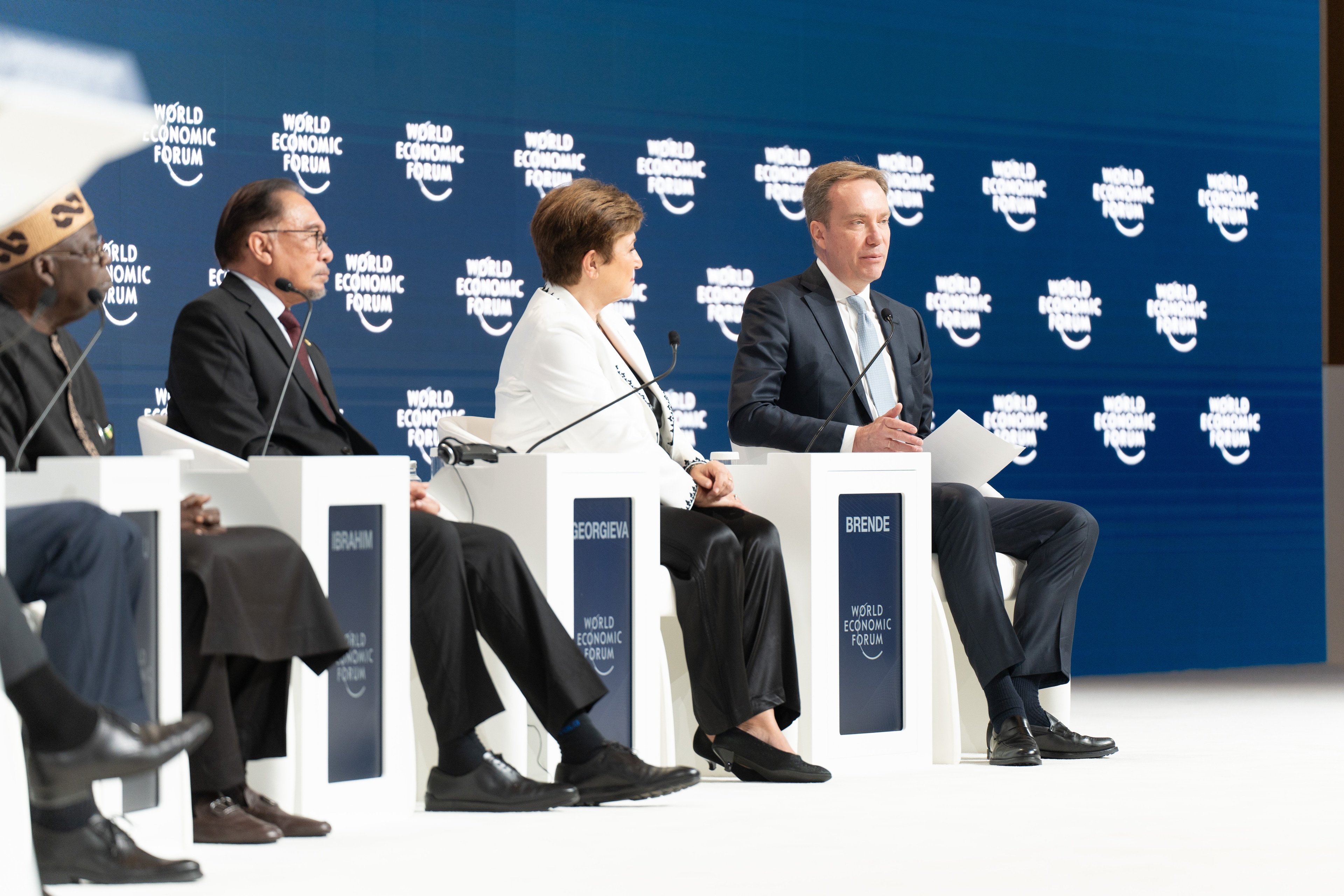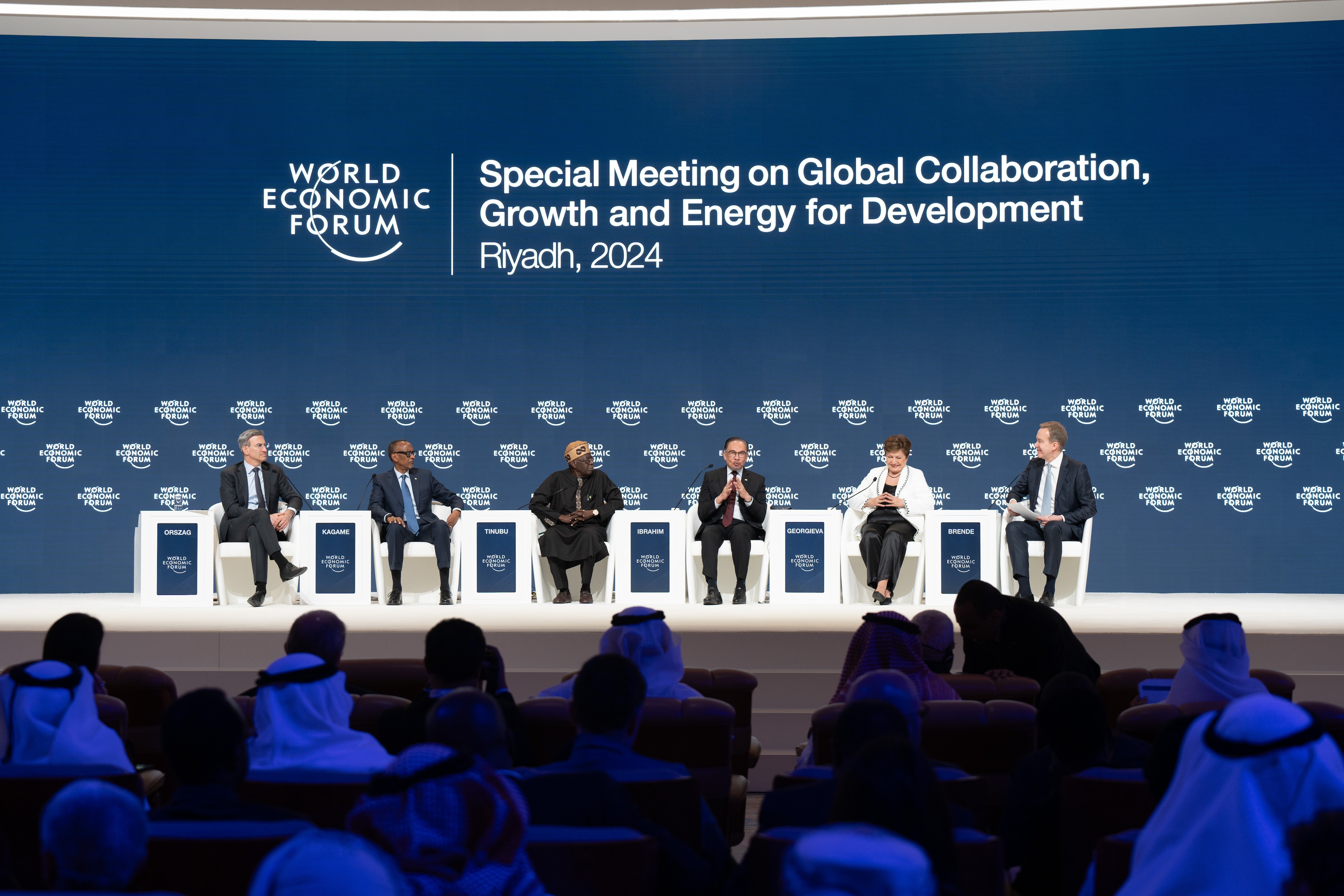Climate change will affect all our health – but some will suffer more. What can we do?

Climate change is creating an unprecedented threat to human health. Farm labourers, among other vulnerable populations, face greater levels of heat-related illness. Image: Reuters/Lucy Nicholson
Shyam Bishen
Head, Centre for Health and Healthcare; Member of the Executive Committee, World Economic Forum
Get involved with our crowdsourced digital platform to deliver impact at scale
Stay up to date:
Global Health
Listen to the article
- Climate change is leading a host of health consequences, including a rise in both communicable and non-communicable diseases.
- Policy changes are required to stem estimated costs on healthcare that may reach $4 billion by 2030.
- Health equity, to mitigate the impact on marginalized and at-risk communities, is a particular priority.
Climate change is creating an unprecedented threat to human health. As earth’s average surface temperature continues to rise, natural catastrophes and extreme weather events will become more frequent and severe. Air and water pollution increasingly contaminate our environment, and the acceleration of climate-sensitive pathogens exacerbates the spread of infectious diseases.
Climate change has also led to a sharp rise in non-infectious diseases associated with air pollution, such as lung cancer and respiratory-related deaths, that previously were not understood to be connected. Moreover, occupational health risks due to excessive heat and polluted environments result in reduced work capacity and productivity. Though nobody is immune to the health threats of climate change, they disproportionately impact historically underserved and at-risk groups: people of colour, Indigenous communities, children and the elderly.
Despite these warnings, humankind remains inadequately prepared to tackle the challenges before us. Current socio-political crises divert resources from addressing these long-term issues, though they already have severe and irreversible consequences on human and planetary health, and the global economy.
How is the World Economic Forum fighting the climate crisis?
The estimated costs of climate change on the healthcare sector alone are projected to reach $2-4 billion per year by 2030, placing an immense strain on healthcare providers and eroding purchasing power for individuals due to deteriorating health conditions and higher living costs. Importantly, this estimate excludes costs from health-determining sectors such as food and agriculture, water, and sanitation, indicating that the costs are likely to be much higher.
Without significant policy changes and investment, the interplay between climate change, biodiversity loss and natural resource consumption will only further increase food and water security issues, threaten livelihoods in climate-vulnerable communities and hinder progress in climate mitigation efforts. Urgent and decisive action is critical to mitigate these health risks and preserve the well-being of current and future generations.
Importantly, the health impacts of climate change are far from equal, with historically underserved communities bearing the brunt of its consequences. Studies have shed light on the alarming disparities, revealing that neighbourhoods historically discriminated against due to race or ethnicity are more impacted by extreme heat due to a sustained lack of investments and a lack of green spaces to mitigate rising temperatures and hot spots.
Low-income neighbourhoods face further challenges, as they often have vulnerable housing infrastructure, higher risks of exposure to environmental hazards, and limited resources to prepare for or recover from extreme climate events. Latino migrant workers, comprising a significant portion of US agricultural labour, face a staggering 20-fold increase in heat-related illnesses due to their higher rates of exposure. Climate change therefore deepens existing health inequities by disproportionately impacting the most vulnerable and disadvantaged communities and intensifying social and economic disparities.
The risks posed by climate change have far-reaching implications for all sectors and businesses, extending beyond just global supply chains. Climate change can impact a company's strategy, finance, operations and workforce well-being. Businesses must therefore recognize that they have a dual role to play: a responsibility to mitigate their own contributions to climate change and an opportunity to drive positive global change. Committing to substantial climate action now is not only a moral obligation, but also a strategic imperative to ensure long-term business viability and to safeguard planetary health.
Tackling the climate crisis and advocating for health equity requires collective action. No single organization, business, or sector can overcome these challenges in isolation. Collaboration, innovation and coordination across industries and regions is absolutely necessary to implement comprehensive and sustainable solutions that will benefit all. By working together, the private sector can play a fundamental role in building a more resilient and equitable future for our future generations.
It is crucial to invest in research and high-impact, innovative solutions that reach those populations most affected by climate change. Several were highlighted in the first session of the Climate and Health series hosted by Kaiser Permanente and the World Economic Forum, conducted on 7 June (watch it here). For example, the Justice40 initiative – a US federal governmental programme – aims to direct 40% of the overall benefits of certain federal investments to disadvantaged communities that are marginalized, underserved and disproportionately burdened by pollution.
What is the World Economic Forum doing to improve healthcare systems?
Technology companies like Google are also contributing through initiatives like Google Cloud's Climate Insights solution, which enables public sector agencies – including those particularly vulnerable to changing environmental conditions – to increase understanding of potential climate risks, increase resilience, and make informed land management and planning decisions.
Recognizing this need, Business for Social Responsibility, a network of sustainable businesses aiming to create a just and sustainable world, is launching the Centering Health Equity within Climate Change (CHECC) initiative, a cross-sector collaborative effort aiming to convene leaders from diverse organizations to develop and implement a joint plan that prioritizes health equity in climate action. By leveraging the creativity, expertise and resources of different entities, the initiative seeks to inspire more urgent climate action while ensuring climate justice and equitable access to health resources for communities.
The complex challenges that arise from the impacts of climate change on health require synergistic and holistic strategies that bring together efforts across stakeholders, including governments, businesses, scientists, civil society and communities. With this diverse and comprehensive approach, innovative and evidence-based practices can be shared, improved and scaled up for impact.
Acknowledging this fundamental need, Kaiser Permanente and the World Economic Forum will host the second session of the Connecting Climate Change and Health series on 21 September during Climate Week NYC, focusing on the importance of research and innovation in climate change and health action. Join this hybrid session to hear panel discussions with thought leaders, researchers, policy-makers and practitioners who are passionate about urgently driving a research agenda that deepens our understanding around climate change as a key driver of health inequities.
Don't miss any update on this topic
Create a free account and access your personalized content collection with our latest publications and analyses.
License and Republishing
World Economic Forum articles may be republished in accordance with the Creative Commons Attribution-NonCommercial-NoDerivatives 4.0 International Public License, and in accordance with our Terms of Use.
The views expressed in this article are those of the author alone and not the World Economic Forum.
The Agenda Weekly
A weekly update of the most important issues driving the global agenda
You can unsubscribe at any time using the link in our emails. For more details, review our privacy policy.
More on Forum InstitutionalSee all
Gayle Markovitz
April 28, 2024
Gayle Markovitz
April 27, 2024
Mirek Dušek and Maroun Kairouz
April 27, 2024
Kate Whiting
April 26, 2024
Spencer Feingold and Gayle Markovitz
April 19, 2024
Kate Whiting
April 17, 2024






